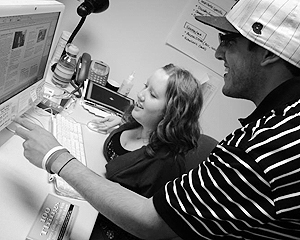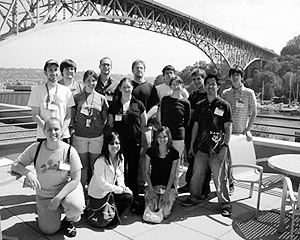WebAnywhere: Accessible Accessibility (AccessComputing News - Jan 2010)
For a person with a visual impairment, a computer can initially present some accessibility challenges. However, there are a wide variety of software products available to help people of all abilities access and use a computer. One of the more popular products for people with visual impairments is a screen reader that uses a digital voice to read aloud text that appears on a computer screen. While a very helpful tool in making a specific computer accessible, screen readers are not always installed on public computers in libraries and Internet cafés.

